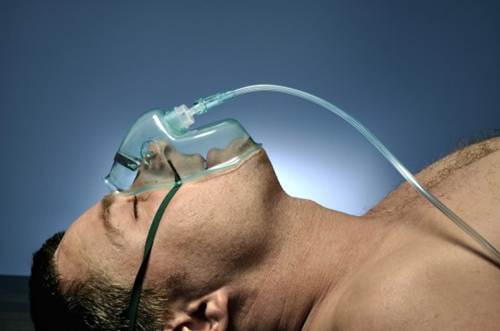
Middle East Respiratory Syndrome (MERS) is a respiratory disease caused by a coronavirus called Middle East Respiratory Syndrome Coronavirus (MERS-CoV).
Coronaviruses are a large family of viruses that cause illness in humans ranging from the common cold to severe respiratory illness. Coronaviruses can also infect animals.
MERS-CoV is a type of coronavirus. MERS-CoV was first detected in April 2012 and this particular virus has not been seen in humans before then. MERS-CoV used to be called novel coronavirus.
MERS-CoV is not the same as the SARS-associated coronavirus(SARS-CoV) taht caused severe acure respiratory syndrome(SARS) in 2003. Both viruses are coronaviruses and both can cause severe respiratory disease. However, unlike SARS-CoV, MERS-CoV does not appear to spread easily from person to person.

Symptoms of MERS
Most people who have been infected with MERS-CoV developed severe respiratory illness with fever, cough and shortness of breath. Many have had gastrointestinal symptoms including diarrhea. About half of those who have been confirmed as having MERS-CoV infection have died. Some people were reported as having mild respiratory illness.
Symptoms may appear up to 14 days after exposure. There is no evidence to suggest that persons with MERS-CoV are contagious during this incubation period.
| Be Aware of MERS |
There is no specific treatment for MERS yet. As with other coronaviruses like the common cold, medical care focuses on providing relief from symptoms and attempts to limit the severity of the illness. Treatment is provided based on the patient’s clinical condition.
Tips to prevent MERS
As there’s no vaccine avalaible yet you need to follow these tips to help prevent respiratory illnesses of any kind :-
1) Wash your hands often with soap and water for 20 seconds, and help your kids to do the same.
2) Cover your nose and mouth with a tissue when you cough or sneeze then throw the tissue in the trash.
3) Avoid touching your eyes, nose or mouth with unwashed hands.
4) Avoid close contact with sick people.
5) Clean and disinfect frequently touched surfaces and objects, such as toys and doorknobs.
Source :-Virginia Department of Health
Get this handbook :

Leave a Reply